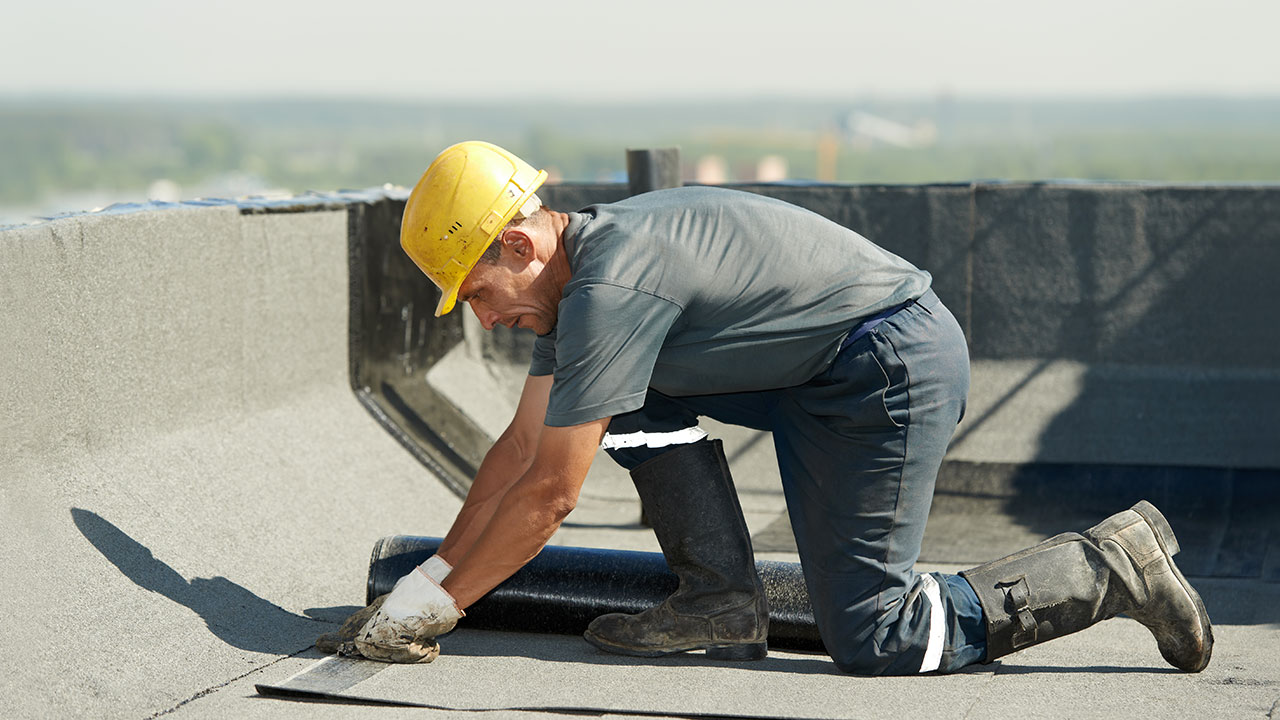When you discover issues with your commercial roof, you may wonder whether a total roof replacement is in your near future, or whether you can get by with a simple repair. We discuss common signs of trouble, what they could mean, and how to make the right decision for your roof.
Will Your Roof Live Out its Designed Lifespan?
Most commercial roofs get replaced long before the theoretical lifespan of their materials runs out. An asphalt roof might technically last up to 22 years, but without regular inspection and maintenance, it may only last 15. A TPO roof might last up to 30 years, but if it’s exposed to constant UV or assailed by windborne debris, it might only last 20.
Your goal as a facility manager is to make sure that your commercial roof lasts as long as possible before it needs replacement. This means that the expense of paying for a new commercial roof (which can be vast, depending on the size of your building) will be amortized over many years, diminishing its relative expense. A roof that costs $20,000 and lasts 20 years will cost $1,000 per year. If you make that roof last another ten years, it will cost $667 per year.
Here's the problem: most facility managers inherit their commercial roofs midway through their lifecycle. They can’t control the decisions that the previous facility manager made. If they were negligent regarding repairs and inspections, their successor just has to role with the punches. Their job is to preserve the existing roof for as long as possible before it must be replaced. Given that this is a monetary issue just as much as it’s a safety issue, how should facility managers proceed?
First, Hire a Roofing Consultant
Your best first move as the owner of a used commercial roof is to hire a roofing consultant. Roofing consultants don’t work directly on the rooftop—which means that they don’t have a financial incentive to recommend additional repairs or replacements when none are warranted. Rather, they’ll tell it like it is because they get paid either way. This lets you make a relatively unbiased decision.
That said, there are some things you can do, both to help your roofing consultant and help yourself make a more informed choice.
- Check the original drawings
If you’re lucky, you’ll have the original blueprints that go with your commercial roof. Based on this information, you can see if the roof as it exists is significantly different from the roof as originally designed. This could be a red flag—if the roof is different, it could mean that the original roofing contractors had trouble interpreting instructions from the architect. This in turn may mean that the roof isn’t functioning as intended, which could warrant replacement.
- Check your records
In addition, your predecessor may have left records of maintenance and repairs. This is very valuable because you can understand how frequently your roof needed repairs in the past. A roof in good condition should only need a few repairs a year, but a roof that’s in need of replacement will need repairs much more frequently. It’s also important to check which repairs were needed—repairs after major weather events are one thing, but if the roof seemed to develop leaks on its own, that’s another thing entirely.
- Check the roof deck
If your roof membrane is severely damaged, it needs to be replaced—but if you can catch this damage in time, you may be able to avoid extensive damage to the roof deck, which is a much more costly replacement. Don’t stall on getting your roof inspected.
A Roof Replacement is an Opportunity
Don’t despair if you need to replace your entire roof. Instead, think of it as an opportunity to make your whole building more efficient. With new roofing materials and sustainable building techniques, you can make your whole roof more energy efficient, and you can construct it out of longer-lasting materials. The result is that you’ll be able to amortize your new roof over a longer period, and you’ll pay less to heat and cool your building in the meantime.
Whether you repair or replace your roof, you should consider adding rooftop walkways and equipment supports from PHP Systems/Design. This rooftop infrastructure will make it much easier to inspect, repair, and upgrade your roof—and our equipment is guaranteed to outlast your roof itself. For more information on our custom rooftop access equipment, contact us today!



